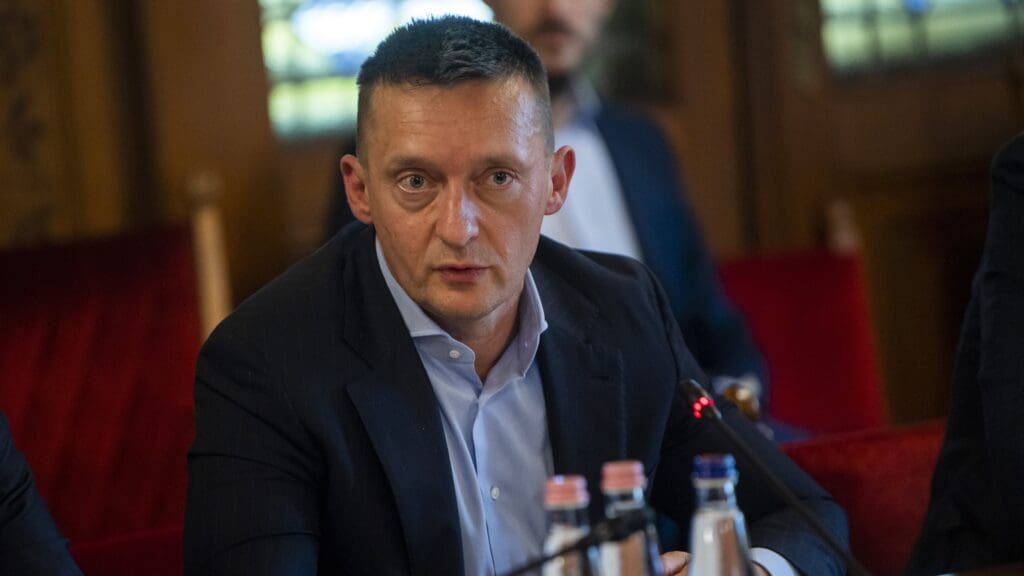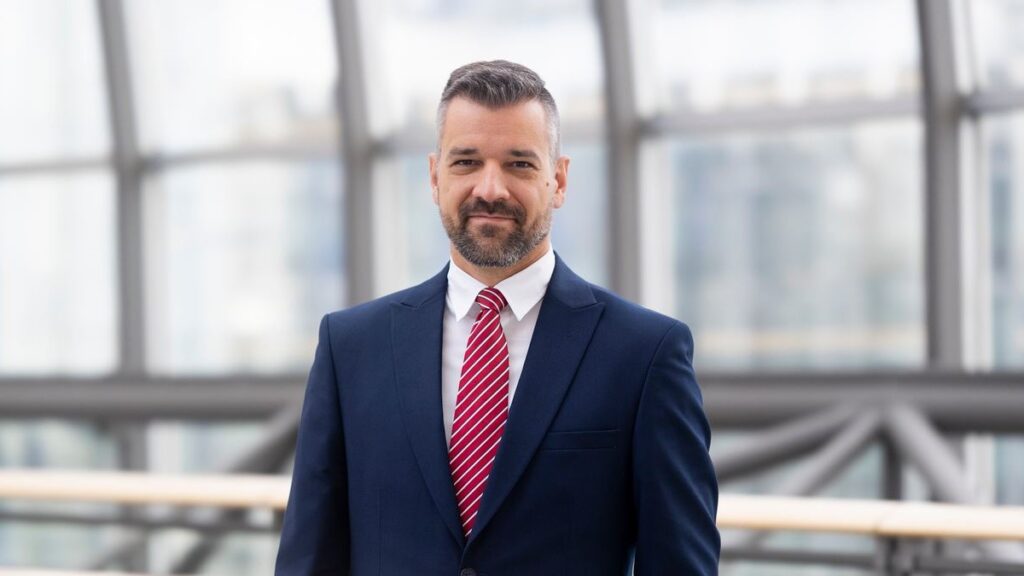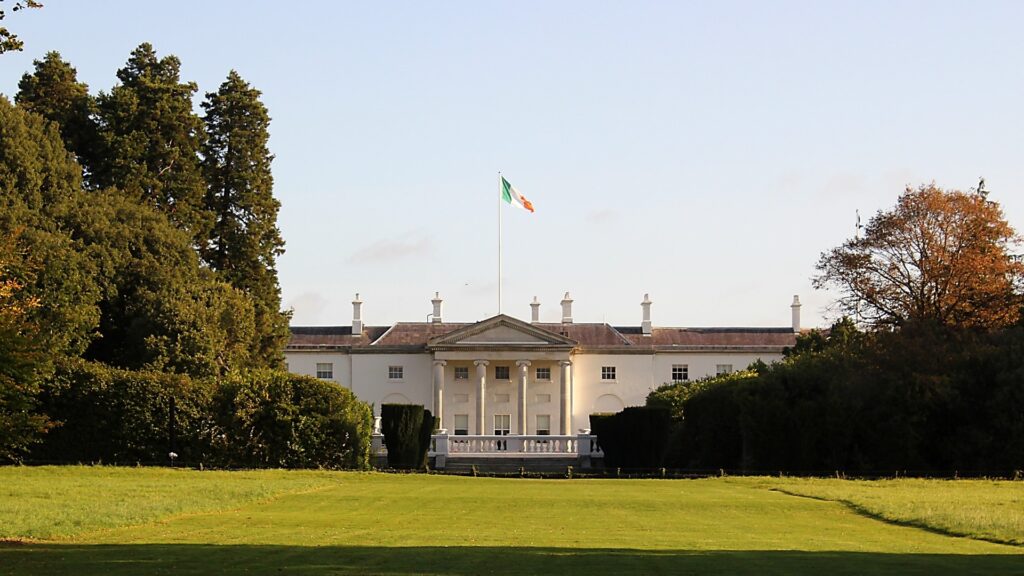Hungary is one of the key chokepoints of the global economy, but its keystone state role requires a realistic and self-interested policy approach, Carlos Roa, guest researcher at the Danube Institute, said in an interview with Mandiner. According to the American geopolitical analyst, ‘keystone states’ like Hungary are of particular importance in the changing world order, and one of their main characteristics is that, with their national interests in mind, they maintain close diplomatic relationships with everyone—be it the United States, China, India or Russia.
The European Union is facing a decisive year, as the European Parliament elections will be held in June, and immediately afterwards the EU decision-makers will be busy with the allocation of top positions, while there is also much to be done, since in addition to internal challenges, many external conflicts will also test the member states. How do you see the future of the European Union?
As a matter of fact, I am a bit pessimistic and interpret the situation in a broader context. The strategy of the European Union for two decades now is that the unipolar neoliberal world order led by the United States will continue for the foreseeable future, and Europe can enjoy all its advantages. This way of thinking can be traced back to three pillars: the international security guaranteed by the United States, the cheap energy provided by Russia, and the Chinese and now partly Indian market, which constantly demands European goods. However, in the meantime, the war broke out in Ukraine, so Europe forced a farewell to Russian energy, and the member states now have to spend more on their own defense, and in addition to higher energy costs, they also have to deal with the inflationary environment. Trade relations with China have also undergone significant ‘decoupling’ or ‘de-risking’, after America said that it is necessary.
This poses a huge challenge to the maintenance of welfare states,
and the European Union, we can say, has few ideas on how to deal with the situation. This poses a huge challenge to the maintenance of welfare states, and the European Union, we can say, has few ideas on how to tackle all this. The European Parliament elections also promise to be problematic because the armed conflict in the Red Sea and the war between Israel and Hamas are expected to accelerate inflation, and this is expected to happen in May or June, so right before the elections. There may be a lot of quiet panic thinking in the background, because if inflation explodes at the worst time, before the elections, then the population will vote for the nationalist parties.

Is that what you expect? Are the right-wing forces getting stronger?
There is certainly a fear of this, given, for example, the weeks of farmers’ protests in Germany or the general discontent caused by illegal immigrants. The European elite is regarded by the public as the maintainer of the current system, and if they see that this system is failing, then people usually vote for the other side.
What geopolitical ambitions can the EU have in the changing international order?
Well, the European Union is in such an unfortunate situation that it is forced to find answers to how to maintain the prosperity on the continent that EU citizens have become accustomed to in recent decades—this is not polite to say out loud. As the security guaranteed by the United States decreases, there is a need to increase defense spending, but the budget is limited anyway. So where would the money for all this come from? Moreover, in the short term, one of the most pressing issues is dealing with the migrant crisis, including the fact that many immigrants take advantage of Europe’s overly generous welfare state.
To maintain this, new taxes would be needed—European decision-makers must also face this, but no one dares to talk about the problem.
And what role can Hungary play in this formula?
Hungary is in an unusual position within the European Union because the country’s leadership is well aware of external changes and their possible consequences. For example, the Hungarian government is the only one in the EU to see that it is madness to impose full-scale energy sanctions on Russia since the union thereby stunted the development of its own economy. The Hungarian government is therefore aware that if it wants to perform well with its own national interests in mind, it must maintain a formal, or let’s say, polite relationship with certain countries. This, of course, also makes Hungary unpopular in the eyes of other Western states, but it is better to be unpopular today than to suffer tomorrow—as others do.
In a previous analysis published on Hungarian Conservative, you cited Hungary as an example, when you described the widely accepted theory of Nikolas K. Gvosdev, a professor at the U.S. Naval War College, who argues that certain states, ‘located at the seams of a global system’, are ‘connectors and mediators—and they serve as gateways between regions…and have integrative power and the ability to create positive relationships’. What does that mean exactly?
At the center of Gvosdev’s theory are the so-called keystone states, which, in a multipolar era of strategic competition between great powers, assume an outsized importance than what would be expected from their size, population, or economic power. So, the keystone states are decisive actors undergirding the stability of any particular region, the key chokepoints of the global economy, and the diplomatic mediators necessary to maintain peace and order. However, for the proper functioning of the keystone states, strict conditions must also be met: they need a decidedly realistic and self-interested foreign policy approach.

And is Hungary such a keystone state that plays a connecting role?
Yes, especially as it becomes more clear over the coming months, for example in the second half of 2024, when Hungary holds the presidency of the Council of the EU. However, that connecting role depends on a few things. First of all, maintain strong, balanced ties with everyone else, whether it be Russia, China, India, or the United States, everyone.
You don’t have to be the best friends.
This connecting role does not at all mean that a given country attaches the label of ‘best friend’ to everyone or that the nature of relations must be constantly proved in the crossfire of the cameras—it rather means that it is ready to sit down with all negotiators, observing the politeness expected in diplomacy rules. To give another example in addition to Hungary, we can also consider Azerbaijan as a keystone state in the Caucasus, which, at the intersection of Russia, Türkiye and Iran, regards China as an equally important partner as the European Union. In the case of such keystone states, everyone wants that state to align with them. This is natural, since if the given key state focuses its attention on one corner of the field, tension arises in the other corner of the field. However, in the case of keystone states, the point is that they can remain neutral and move in the field according to their own interests. By the way, Ukraine is a good counterexample to keystone states: considering its geopolitical position, it could have easily become a keystone state, but it did not, even though the name of the country itself indicates this: it means ‘border region’.
Speaking of Ukraine, do you think the country has a chance to win against Russia?
In my opinion, the main problem is that the discourse on the Russian–Ukrainian war has become very ideologically read. For the United States, and for the West in general, this is a ‘good’ war, which takes place between supporters of democracy and authoritarians. So if Ukraine loses the war, in their formula it’s like the bad guys winning Star Wars, but that shouldn’t happen, because the good guys always win in Hollywood. On the other hand, the prestige factor also works in the background. The United States invested heavily in this war, saying we can win it, we can defend democracy against ‘authoritarian power’. However, rhetorical expressions also have consequences, because if Ukraine loses the war in an embarrassing way, then the question may also arise in Taiwan, for example: is the United States unable to protect us? And we could also talk about the economic consequences, since a lot of money was consumed by the war, but the question that most people may have is how to get out of this destructive conflict without losing face.
However, a defining element of the discourse is the reconstruction of Ukraine after the war…
Yes, but then let’s turn back to the beginning of our conversation. Internal political tensions, inflation and the migration crisis are tearing the West apart. Would you take on more debt? And where does the money come from? From the taxpayers? Will the taxpayer be willing to swallow even more tax increases to help Ukraine? So I’d say I’m more of a pessimist in that regard. Of course, there will certainly be a budget for the reconstruction of Ukraine, but it is probably a fraction of what would be needed in the long run. Unless Ukraine creates its own opportunities over time, literally selling itself.








